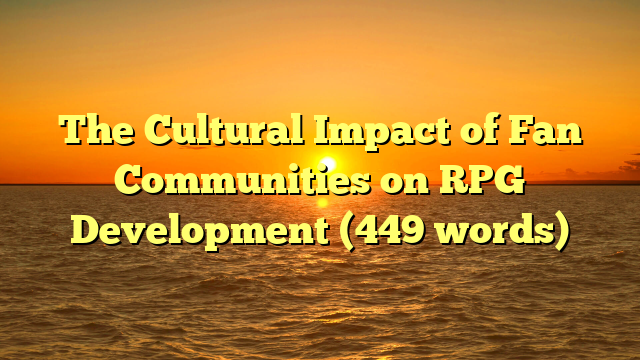Fan communities have influenced RPG evolution in ways that often surpass official developer decisions. Early RPG fandom began with tabletop raja toto88 communities that shared house rules, custom classes, and homemade adventures. When digital RPGs emerged, players quickly formed forums and fan clubs to exchange strategies, modding tutorials, and lore interpretations.
One of the most transformative aspects of RPG fan culture is modding. Games like Baldur’s Gate, Neverwinter Nights, and Skyrim owe much of their longevity to massive modding communities. Fans create new quests, mechanics, visual upgrades, and even full conversion mods. These creations often extend the lifespan of RPGs by years or even decades.
Fan feedback has also influenced game balance and updates. MMORPGs in particular rely on active communities for class tuning, raid feedback, and social ecosystem analysis. Developers frequently adjust drop rates, skill trees, and endgame systems based on community behavior. In some games, player councils or community representatives provide structured communication between fans and developers.
RPG fan culture also impacts narrative interpretation. Players analyze lore, create fan fiction, and share theories that enrich community identity. Iconic characters like Cloud Strife, Geralt of Rivia, and Commander Shepard have become cultural symbols thanks to fan engagement.
Streaming and content creation have further expanded the cultural footprint of RPGs. Let’s Plays, role-playing streams, and lore videos transform single-player experiences into shared communal events. Games like Dark Souls, Persona 5, and Baldur’s Gate 3 gained massive audiences through fan-driven visibility.
The influence of fans on RPGs is undeniable—driving innovation, extending longevity, and shaping cultural perception.


